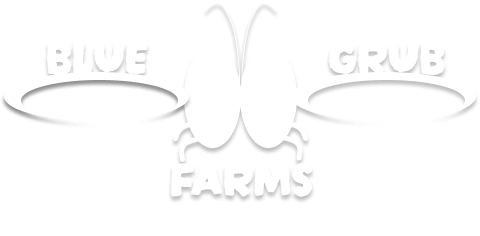Our Wiggly Allies: Why Black Soldier Fly Larvae are Your Yard's (and the Planet's) Best Friend for Pet Waste
Let's be honest, as much as we adore our furry companions, dealing with their, ahem, output isn't exactly the highlight of pet ownership. For years, the go to solution has been the trusty plastic bag, whisking the offending pile away to the mysterious land of the landfill. But here's a not so fun fact: those little plastic parcels of poo are an ecological nightmare. Trapped in their synthetic tombs, the waste decomposes anaerobically (without oxygen), a process that spews methane, a greenhouse gas far more potent than carbon dioxide, into the atmosphere. Plus, the plastic bags themselves can take centuries to break down, contributing to the ever growing plastic pollution crisis. It's a stinky situation, both literally and figuratively, for Mother Earth.
But what if I told you there's a tiny, wriggly hero ready to transform this problem into an environmental triumph? Enter the Black Soldier Fly Larva, or BSFL as it's affectionately known by its fans (yes, we exist!). These unassuming grubs are nature's ultimate recycling machines, possessing an insatiable appetite for organic waste, including the very stuff Fido leaves on your lawn. Unlike your average compost heap that might turn its nose up at pet waste due to pathogen concerns, BSFL are remarkably efficient at neutralizing harmful bacteria and rapidly converting waste into nutrient rich biomass. Studies have shown they can reduce waste volume significantly and do it with a much lower carbon footprint than traditional methods. Think of them as a miniature, eco friendly waste treatment plant operating right in your backyard.
Now, you might be picturing a scene from a B grade horror movie, but fear not! BSFL are not your typical houseflies. The adult flies don't bite, don't spread disease, and are generally too busy with their short, focused lives to be a nuisance. It's the larvae that are the superstars here. They work diligently, munching through waste and, in the process, creating two incredibly valuable byproducts. First, there's the larvae themselves, which are packed with protein and fats, making them an excellent, sustainable feed source for chickens, fish, or even exotic pets. Second, the leftover material, charmingly called 'frass', is a fantastic, nutrient dense soil conditioner, perfect for giving your garden a boost. So, instead of sending waste and plastic to a landfill, you're creating valuable resources!
Making the switch to BSFL for pet waste isn't just a quirky science experiment; it's a genuinely impactful step towards more sustainable living. You're diverting waste from overburdened landfills, reducing greenhouse gas emissions, cutting down on plastic pollution, and even producing your own valuable soil amendments or animal feed. It's a win win win situation. The ecological superiority of these little larvae over the plastic bag and landfill combo is clear. They offer a closed loop system where waste becomes a resource, rather than a lingering problem.
So, how can you enlist these tiny eco warriors? Many people build or buy simple BSFL composting units designed specifically for this purpose. Just ask us and we’ll help y’all ditch the plastic bag guilt and embrace a solution that's not only better for the planet but also surprisingly fascinating. Let the Black Soldier Fly Larvae work their magic in your yard; your pet, your garden, and the Earth will thank you for it.
References:
Siddiqui, S. A., Risto, B., Rahayu, T., Putra, N. S., Yuwono, N. W., Nis, K., ... & Nagdalian, A. (2022). Black soldier fly larvae (BSFL) and their affinity for organic waste processing. Waste Management, 140, 1-13. (Found at: https://www.sciencedirect.com/science/article/pii/S0956053X22000010)
Morro Bay National Estuary Program. (2023, September 1). Dog Poop Bags: Breaking Down How Dog Waste Bags Break Down. (Found at: https://www.mbnep.org/2023/09/01/dog-poop-bags-breaking-down-how-dog-waste-bags-break-down/)
